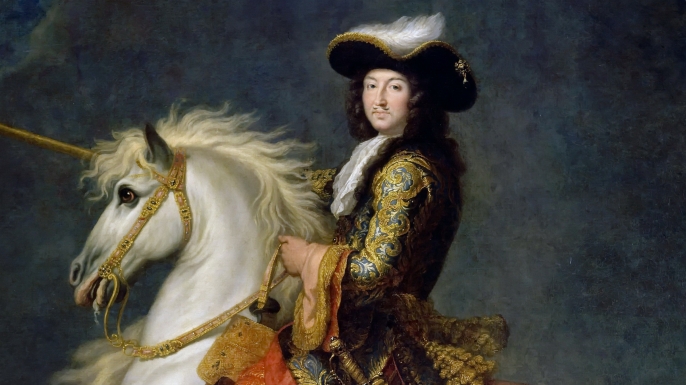
Remind me, Dear One, to
Tell you the fable about the
Atom that hungered to be a
Molecule.
Most of us believe that what elevates a person in society is intelligence and talent, but this is not entirely true. Intelligence and talent are not insignificant; to the contrary, people with such gifts have brought beauty and knowledge to the world. Intelligence and talent combined within one person can be very powerful. Yet, of the forces which propel history, among the most powerful is and has been ambition.
Ambition, a force unlike intelligence and talent, actually requires neither. Brutishness alone – the selfish ambition of unstoppable physical aggression combining intimidation, fear, and violence – has a storied history and still occupies a special place in legend, myth and Hollywood. Our present preoccupation with Super-Heroes and Super-Villains testifies to the power of ambition; when unlimited, the power of selfish ambition transforms into terror.
Such is a frequent narrative of politics: the translation of selfish ambition into power over people and events, or at least the illusion of such power. Historically, selfish ambition to gain the absolute power of a monarch (such as Louis XIV, pictured above) and control unlimited wealth and military force unleashed episodes of local and global trauma in the form of war, fueling the ancient mythology of gods and goddesses and stimulating more modern despots eager to fill history books.
If intelligence and talent were the sole currency of human society, the world would not be so mediocre, nor on the brink of ecological disaster. Selfish ambition for wealth, mastery over nature and control of others have brought us to our present and dreadful situation. Correspondingly, we have elevated the idea of competition to a virtue and have invested it with science-like authority. Darwin’s Theory of Evolution and the concept of “survival of the fittest” have been purposefully distorted to justify the benefits of competition in human affairs, to terrible effect.
An inclination towards “science-like authority” provides comfort to us, particularly in these modern times. Science has been in competition with religious faith for centuries, and in our western mainstream society faith in science has mostly replaced it. Unquestioned faith in “God’s Will” brings along its own problems; though it comforts and motivates, it’s also rudely visible in the rise of violent fundamentalist ideologies. Who gets to determine the nature of God’s Will remains problematic, as does whose God rules the affairs of humankind and nature.
In some sense, humanity seeks the leadership of an enlightened monarch, or at least history leads us to conclude this. We repeatedly fall sway to the promise that a special one among us can save us from ourselves and we invest that one with powers of a super-hero. We seem incapable of accepting more humble narratives, yet democracy betrays our desire for cooperation.
Ultimately, the story of humanity is its longing for unity. This longing is expressed continuously, though our ambivalence, confusion and illusions make it difficult to see clearly. Thus selfish ambition and its ruthless ability to unify through brute force repeatedly attracts us; we are drawn into its gravity-well of power and authority, as have been countless others before us.
Perhaps there was a time when selfish ambition justly earned its place among us, but today our environmental woes are too great for any monarch. For the unity we seek now – and our survival – it takes a planet.